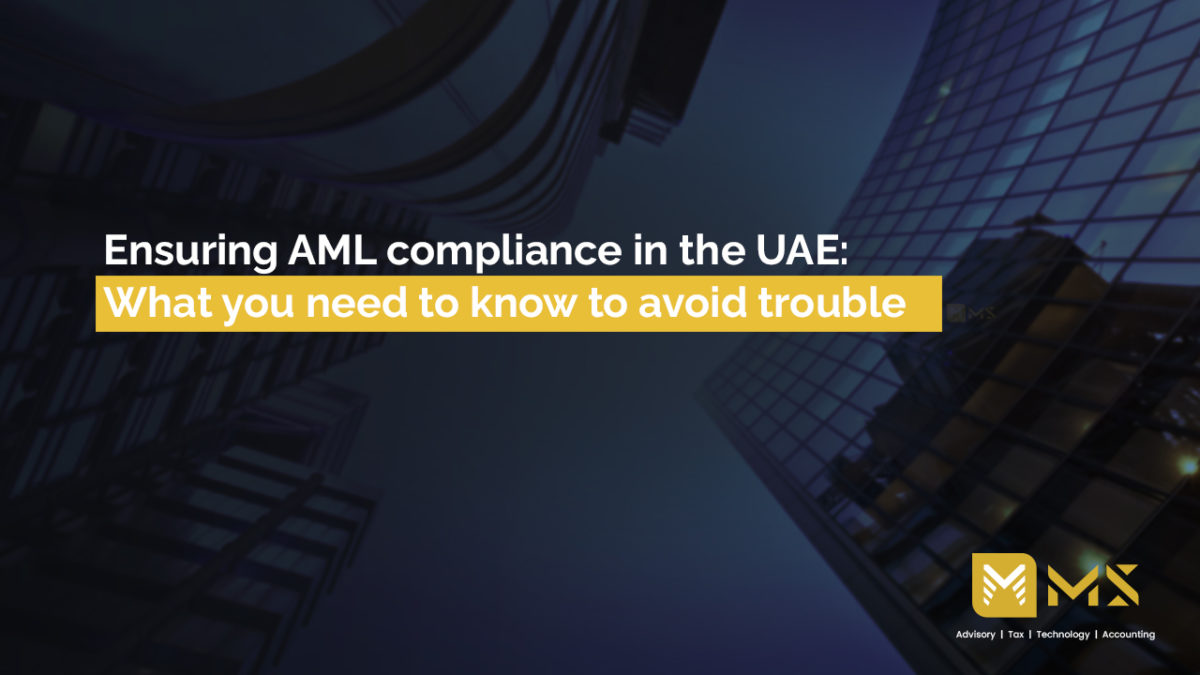The United Arab Emirates (UAE) has stringent Anti-Money Laundering (AML) regulations aimed at combating financial crime and ensuring the integrity of its financial system. Entities operating in various financial sectors, from payment services to digital assets, are subject to licensing and compliance requirements set forth by the UAE government.
Let’s delve into the specifics of these regulations, their enforcement, and the consequences of non-compliance.
Establishing Criminal Violations
To prove a criminal violation of money laundering laws in the UAE, the government must establish that a person has knowingly engaged in acts such as:
- Transferring or moving proceeds to conceal their illicit source.
- Concealing the true nature or source of the proceeds.
- Acquiring, possessing, or using the proceeds.
- Assisting the perpetrator of the predicate offense to escape punishment.
The UAE also identifies various predicate offenses linked to money laundering, including fraud, counterfeiting, narcotics trafficking, tax crimes, and more. Tax offenses, including tax evasion, can also constitute predicate offenses. Extraterritorial jurisdiction applies to money laundering offenses if any acts are committed in the UAE or if the results are intended for the UAE. Similarly, predicate offenses may be prosecuted in the UAE if punishable in both the UAE and the country where they occurred.
Laws Prohibiting Money Laundering
The UAE’s principal federal anti-money laundering laws include:
- Federal Decree Law No. (20) of 2018: Focuses on Anti-Money Laundering, Combating the Financing of Terrorism, and Financing of Illegal Organizations.
- Cabinet Resolution No. (10) of 2019: Serves as the implementing regulation for Decree Law No. (20) of 2018.
- Federal Penal Law No. 31 of 2021: Includes provisions related to money laundering offenses.
Penalties for Violations
Penalties for individuals convicted of money laundering range from one to 10 years imprisonment and fines between AED 100,000 and AED 5 million. Companies face fines ranging from AED 500,000 to AED 50 million. Additionally, failure to report suspicious transactions or tipping off can result in imprisonment or fines.
AML Compliance Requirements
Various laws and regulations impose AML compliance obligations on financial institutions, designated non-financial businesses and professionals (DNFBPs), virtual asset service providers (VASPs), and non-profit organizations (NPOs). Regulated entities must adhere to these requirements.
Types of Institutions Subject to AML Rules
Institutions subject to AML rules include banks, exchange houses, insurance companies, fund managers, real estate agents, lawyers, accountants, and virtual asset service providers. These entities play a crucial role in detecting and deterring money laundering and terrorist financing activities. Compliance officers and MLROs are crucial for ensuring AML compliance. Individuals can face enforcement actions, including fines and bans, for violations.
Licensing and Regulation of Payment Services and Money Transmitters
Activities such as stored value services, electronic payments, retail payment services, and card schemes require licensing from the Central Bank of the UAE (CBUAE). Money or value transfer services (MVTS) providers must also be licensed or registered with the competent supervisory authority. Compliance with AML/CTF controls, as outlined in the Cabinet Resolution, is mandatory for these entities.
AML compliance Rules for Digital Assets and Virtual Asset Service Providers (VASPs)
VASPs must comply with federal AML laws and regulatory requirements. The SCA’s Decision and Dubai’s Law No. 4 of 2022 regulate activities related to crypto assets. The ADGM and DFSA have issued guidelines and frameworks for regulating virtual asset activities.
Specific AML Compliance Requirements
Regulated entities must:
- Identify, assess, and understand ML/TF risks.
- Conduct customer due diligence (CDD) and ongoing monitoring.
- Appoint qualified compliance officers.
- Implement risk-based compliance policies and controls.
- Report suspicious transactions promptly.
- Maintain accurate records and screen transactions for suspicious activity.
Different Requirements for Different Institutions
While similar obligations apply to all regulated entities, specific requirements exist for:
- MVTS providers to maintain agent lists.
- Non-Profit Organizations (NPOs) to apply best practices.
- VASPs to perform CDD measures and retain transaction data.
Examination and Enforcement Authorities
The CBUAE and SCA regulate financial and capital markets. The MOE supervises DNFBPs, while the FSRA and DFSA oversee compliance in financial free zones. The newly established VARA regulates virtual assets in Dubai.
Reporting Suspicious Activity
Regulated entities must report suspicious transactions to the FIU via the goAML platform. Failure to report suspicious activity can result in imprisonment or fines. Information related to suspicious transactions is confidential and must not be disclosed except for specific investigative purposes. Warning or tipping off individuals about reported suspicious activity is a criminal offense. It is important to note that, there are no specific requirements for reporting large currency transactions, but all suspicious transactions must be reported.
Reporting Cross-Border Transactions
- Individuals must declare currency, negotiable instruments, or precious metals valued over AED 60,000.
- Regulated entities must report transactions with reasonable suspicion of criminal activity.
Financial Intelligence Unit (FIU)
The FIU in the CBUAE is responsible for analyzing information related to ML/TF crimes. It exchanges information with global counterparts and provides data to law enforcement.
Penalties for Non-Compliance
- Civil penalties include fines, warnings, restrictions on working, and revocation of licenses.
- Criminal penalties, including imprisonment and fines, apply for intentional failure to report suspicious activity.
Beneficial Ownership Registry
As a part of AML rules compliance, the UAE mandates entities to maintain accurate and updated information on ultimate beneficial owners (UBOs). This information is provided to relevant licensing authorities, ensuring transparency.
MS for premium AML compliance services
Ensuring strict adherence to UAE regulations is essential for achieving business success. Teaming up with MS guarantees top-notch security and confidentiality to meet your compliance requirements. We place a high priority on protecting sensitive data, adhering to industry standards, and complying with regulations. With our expert team at your side, you’ll benefit from a certified MLRO serving as your regulatory point of contact for AML needs. Our support enables you to effectively navigate the regulatory environment of DIFC & ADGM, ensuring ongoing compliance while concentrating on your primary business goals.
